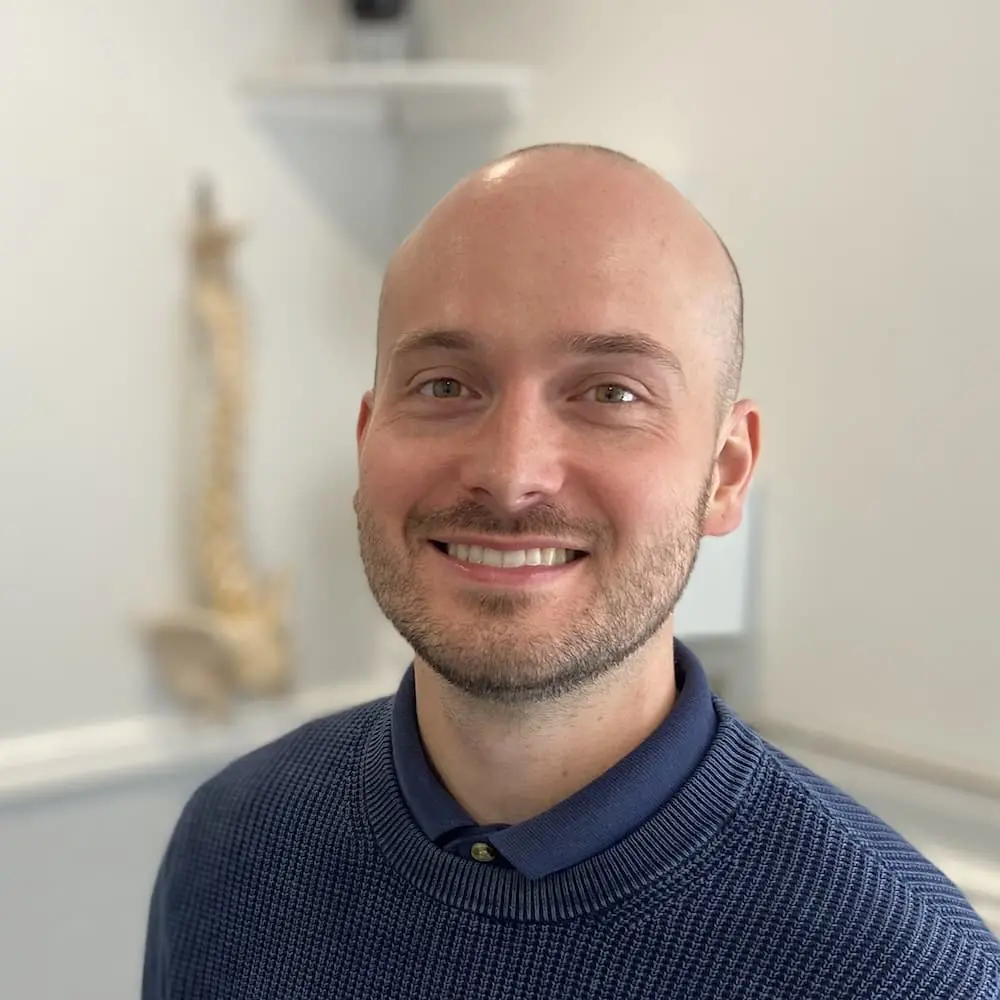Knee Pain
Knee pain
Knee pain is a common complaint characterised by discomfort, aching, or sensitivity in or around the knee joint.
It can result from injuries, osteoarthritis, inflammation, or underlying medical conditions, and may range in intensity from mild to severe.
Knee injuries that can cause knee pain, encompass a wide range of issues that can afflict the various components of the knee, including the bones, cartilage, ligaments, tendons, and muscles. We have expanded on a few but this is by no means an exhaustive list of potential causes of knee pain.
What conditions are associated with knee pain?
Acute Injuries
- ACL Tear: A tear in the anterior cruciate ligament often caused by sudden twisting or impact.
- Meniscus Tear: Damage to the meniscus, the cartilage that cushions the knee joint.
- Fractures: Broken bones around the knee due to trauma.
- Dislocation: The knee joint, or knee cap joint moves out of position, often as a result of trauma.
- Tendon Rupture: Sudden rupture of tendons around the knee joint, often requiring surgical repair.
Overuse Injuries
- Tendinitis: Inflammation or irritation of a tendon.
- Runner’s Knee (Patellofemoral Pain Syndrome): Pain around the front of the knee, common in athletes.
- Iliotibial Band Syndrome: Pain on the outside of the knee due to friction between the iliotibial band and the knee.
Degenerative Conditions
- Osteoarthritis: The cartilage in the knee joint wears down over time.
- Rheumatoid Arthritis: An autoimmune disease that can affect the knee joints.
- Gout: A form of arthritis caused by the accumulation of uric acid crystals in the joint.
Inflammatory Conditions
- Bursitis: Inflammation of the bursa, a fluid-filled sac that reduces friction in the knee joint.
- Synovitis: Inflammation of the synovial membrane, which lines the knee joint.
Mechanical Problems
- Loose Body: A piece of bone or cartilage that floats in the joint space and can interfere with joint movement.
- Knee Locking: The knee gets stuck in a position and cannot bend or straighten.
- Patellar Subluxation: Partial dislocation of the kneecap.
Other Conditions
- Patella joint problems: This can be related to cartilage or stability problems amongst other causes
- Osgood-Schlatter Disease: A condition commonly seen in adolescents, causing pain and swelling below the knee.
- Infections: Septic arthritis, cellulitis, and other infections can cause knee pain.
What are the symptoms of knee pain?
Knee pain can manifest in various ways depending on the underlying condition, injury, or disease. Below are some common symptoms that may accompany knee pain:
General Symptoms
- Sharp, Dull, or Burning Pain: The nature of the pain can vary from sharp or stabbing to dull and achy, or even produce a burning sensation.
- Swelling: Fluid accumulation or inflammation can lead to a swollen knee.
- Stiffness: Reduced range of motion or difficulty in moving the knee joint.
- Redness and Warmth: Indicative of inflammation or infection.
- Crepitus: A cracking or grinding noise when the knee is bent or moved.
Movement-Related Symptoms
- Instability: A feeling that the knee may give out or is unable to support your weight.
- Limited Mobility: Difficulty in fully extending or bending the knee.
- Locking: The knee gets stuck in a position and cannot be easily moved.
- Popping or Clicking Sounds: Audible noises when moving the knee.
What causes knee pain?
Knee pain can arise from a variety of causes:
- Acute Injuries: Such as ACL tears or fractures.
- Overuse: From repetitive movements, leading to conditions like tendinopathy
- Degenerative Conditions: Including osteoarthritis and rheumatoid arthritis.
- Inflammatory Issues: Such as bursitis and synovitis.
- Mechanical Problems: Including loose body or knee locking.
- Other Factors: Like infections, obesity, or poor footwear.
What is the best treatment for knee pain?
The best treatment for knee pain depends on the underlying cause and should be determined by a healthcare professional, such as a physiotherapist. Common treatments often involve a combination of relative rest, pain relievers, physiotherapy, and in more severe cases, surgery.
Who should I see to fix knee pain?
For knee pain, you may consult various healthcare professionals depending on the severity and nature of your symptoms:
- Physiotherapist: For an assessment, guided exercises to improve joint function and relieve pain.
- Orthopaedic Surgeon: Specialises in bone and joint issues and can diagnose and offer treatments ranging from medication to surgery.
- Rheumatologist: If the knee pain is suspected to be due to autoimmune or inflammatory conditions like rheumatoid arthritis.
- GP: For initial diagnosis and treatment recommendations. They may refer you to a specialist if needed.
- Sports Medicine Specialist: If your knee pain is related to athletic activities.
- Podiatrist: If the knee pain is suspected to be related to foot or gait issues.
Is exercise good for knee pain?
Exercise can be beneficial for knee pain, but the type and extent depend on the underlying cause of the pain. Targeted exercises can strengthen the muscles around the knee, improve flexibility, and reduce symptoms of conditions like arthritis. A physiotherapist is able to design a suitable exercise program for your recovery.
Will I need surgery for knee pain?
Surgery for knee pain is generally considered a last resort after other treatment options have been exhausted or if the condition is severe. Conditions that may require surgery include significant ligament tears, advanced osteoarthritis, and some fractures. However, many cases of knee pain respond well to non-surgical treatments like medication, physiotherapy, and lifestyle changes.
Chews Health top tip for knee pain
Our Specialists
Posted onTrustindex verifies that the original source of the review is Google. Tennis elbow pain issue resolved in 3 physio - therapy sessions with Richard Saxton. Back to Badminton and Cricket as normal. Many thanksPosted onTrustindex verifies that the original source of the review is Google. I was referred to Chews Health for shockwave therapy for long term IT Band syndrome. Jon Shurr was excellent at talking me the through the process, setting my expectations and listening to my concerns. I just expected to receive the intervention with Jon but what I actually got was a patient-centred, holistic approach to my condition. Jon was excellent at setting physical challenges to test my knee pain and amending approaches when needed. Having completed my course of shock wave therapy I am feeling the improvements and continue to challenge my knees!! I am so pleased with the success of this therapy and am very grateful to Jon.Posted onTrustindex verifies that the original source of the review is Google. Outstanding care and a well-tailored set of stretches and exercises to address my problems and to keep me in shape. Thank you, Jack!Posted onTrustindex verifies that the original source of the review is Google. I have had a great experience here. I went for a knee injury and they’ve helped me so much build my strength back up. I would definitely recommend. The staff are lovely and really care about your improvements and your injury. Very thankful!Posted onTrustindex verifies that the original source of the review is Google. Highly recommended. My Physio (Jack initial assessment and follow up with Fio) completely understood the issue and worked with me to fix the issue. Thanks for you help.Posted onTrustindex verifies that the original source of the review is Google. I would highly recommend Chews Health. I have seen Jon for help with improving muscle strength in my arms and legs. I am in late 70's and presently seeing him every week because of hip pain. The exercises are helping me cope with an ongoing problem. Thank you. DotPosted onTrustindex verifies that the original source of the review is Google. Jack was incredibly helpful in advising on, and treating, my knee injury which was preventing me from training for the Manchester marathon. Jack was able to explain the cause in a really clear way and created a bespoke training and physio plan which enabled me to run the marathon without the level of pain I had been experiencing. Jack has also significantly improved my running form through his advice and the use of the high tech equipment and analysis software available in each session. Thanks to Jack for enabling me to complete the marathon (and enjoy it!) and for continuing to support on my running journey!Posted onTrustindex verifies that the original source of the review is Google. Great service. Jack was honest and straightforward explaining the rationale behind exercises/decisions. Pragmatic approach focused on getting me safely back to sportPosted onTrustindex verifies that the original source of the review is Google. Have waited a few months post-treatment to write a review - just to be certain! Quite simply, I can't recommend these guys highly enough. I went to them with two badly damaged knees (miniscus tears). Having had three arthroscopes over the years, I was completely resigned to needing surgical intervention again. The Chews team had different ideas. After showing me the latest research findings, they assured me my knees could be rehabilitated without a scalpel. I had just a handful of sessions with them and am delighted to report that, six months on, my knees are great! I'm running 5k twice a week (don't laugh, I loathe running and am no spring chicken) without any pain and have taken up tennis. Everyone at Chews is passionate about their subject, knowledgeable, reassuring and friendly. I wouldn't go anywhere else.Posted onTrustindex verifies that the original source of the review is Google. Couldn’t recommend Chews health enough. Jack’s experience and expertise allowed me to identify my problems and gradually build the strength and ability to return to running pain free.Google rating score: 5.0 of 5, based on 116 reviews




